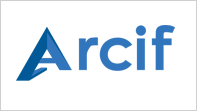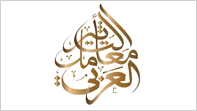The role of educational Supervision in raising the efficiency of the teacher.
DOI:
https://doi.org/10.51984/johs.v21i1.1621Keywords:
Supervision, Educational, Teacher, Scientific Research, SupervisorAbstract
The study aimed at identifying the role of educational supervision in raising the efficiency of the teacher and developing the educational process in general, by answering the following questions:
What is the role of the educational supervision and what is its importance, and what are its types and its educational experiences?
The study dealt with a theoretical framework on the concept of educational supervision and its definition. The development of its stages, its importance and objectives, and what are the obstacles that face applying the educational process in a correct and effective manner in order to achieve the desired results. The study also dealt with a theoretical framework on the concept of educational supervision and the educational teacher and how they are connected to achieve the quality and effectiveness in the educational process from the point of view of some educators and scientists.
In the study, the descriptive approach was used to find out about the educational philosophy, its most important features, its effective role, and the scientific mechanisms that can be developed until the desired goal is achieved.
The importance of this study lies in the fact that it is an attempt to enrich scientific research in the field of educational supervision, and forming a positive progress towards developing and concerning with it.
The study also provided a future vision and proposals to activate the role of educational supervision and educational supervisor, as it is an important tributary of the educational process, one of which is the teacher and educational supervisor.
Downloads
Downloads
Published
Issue
Section
License
Journal of Humanities Policy on Intellectual Property and Plagiarism
1. Commitment to Intellectual Property and Ethics
The Journal of Humanities (JOHS) is fully committed to respecting intellectual property rights and aims to protect the originality and authentic work of authors who submit their manuscripts for publication. The journal takes a firm stand against articles that contain any form of plagiarism and emphasizes the need for all researchers to adhere to the highest ethical standards in scientific research.
2. Anti-Plagiarism Policy
The journal considers plagiarism a serious violation of academic ethics. Therefore, authors must ensure that their work is original and not plagiarized, and that any use of external sources is properly cited and documented according to correct academic standards.
-
Actions Taken: In the event that any plagiarism or academic theft is discovered in a submitted article, the editorial board will contact the author to request a formal explanation within a maximum period of two weeks from the date of notification.
-
Investigation and Decision: After receiving the explanation, the article will be referred to the journal's specialized committees, which will investigate the matter and take the necessary measures, which may include the permanent rejection of the article and the imposition of disciplinary actions.
3. Publication License and Author Rights
The journal adopts the Creative Commons license type Attribution-NonCommercial-NoDerivs 4.0 International (CC BY-NC-ND 4.0), which allows for the following:
-
Attribution: Users are entitled to cite the content published in the journal and use it in their work, provided that the original source and author are clearly credited.
-
Non-Commercial: The published content may not be used for any commercial purpose.
-
NoDerivs: It is not permitted to make any modifications, distortions, or to build derivative works from the published content.
Under this license, authors are required to complete an exclusive license agreement for the journal. Authors retain the rights to their research data and may reuse and share their work for scientific purposes with proper citation.







